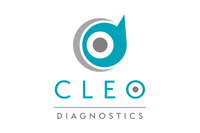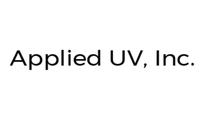Essure Controversy Reveals Larger Problem with Women's Health
The medical device industry often disregards the needs of female consumers, but innovative startup companies are looking to change that.
Bayer Healthcare’s (OTCMKTS:BAYRY) permanent birth control implant Essure is facing five lawsuits after numerous complaints that the device causes chronic pain, perforation of the uterus, ectopic pregnancy and adult and fetal deaths.
The lawsuits seek to remove Bayer’s shield of liability protection on the grounds that the company concealed Essure’s adverse effects. This controversy reveals the larger problem of a medical device industry that disregards the needs of female consumers. Innovative startup companies, like those funded by the Fogarty Institution for Innovation, may offer a solution to this industry-wide concern.
What is Essure?
Essure is a birth control device that is implanted into a woman’s fallopian tubes. A doctor inserts small, bendable nickel coils into the vagina, cervix and uterus. Over time, the nickel elicits an inflammatory response and the growth of scar tissue, which blocks the tubes to prevent insemination.
The device received FDA approval in November 2002, when it was billed as an effective, convenient and permanent method of birth control. This approval implies that the device has undergone rigorous safety testing, and thus affords Bayer protection against liability lawsuits. However, the device received 5,093 official adverse event reports between 2002 and May 31, 2015; among those are five reports of fetal deaths and four adult deaths. There are also thousands of unofficial complaints from women who have experienced problems with the birth control device. For example, the active Facebook (NASDAQ:FB) group Essure Problems has a total of 6,721 likes.
These women will soon get a chance to have their voices heard in an official capacity, after more than a decade of doctors denying that there any negative side effects from the implant. A press release put out Tuesday includes a call for interested members of the public to submit oral and written data, information and experiences about Essure prior to a meeting with the US Food & Drug Administration’s Obstetrics and Gynecology Devices Panel on September 24. This meeting appears to be an important step towards giving women a greater voice in the medical device industry.
Startup solutions
The lawsuit against Essure illustrates that women’s healthcare concerns are often overlooked in the medical device market. This market-wide underdevelopment may be partially attributed to the fact that only 4 percent of venture capital goes to female entrepreneurs. The Silicon Valley-based Fogarty Institution for Innovation is striving to change that by investing in startup companies with an emphasis on women’s health and female leadership. According to MedCity News, the institution recently launched three new startup companies: Igantia Therapeutics, Marz Medical and Madorra. Respectively, these companies are developing devices to treat issues related to menopause, breast and burn reconstruction surgery and vaginal dryness and atrophy.
Fogarty board member Fred St. Goar told MedCity News, “[i]t’s not your average makeup of a medical device portfolio. […] We’re looking at startups that are going to be game-changing, paradigm-shifting in healthcare. We don’t want another heart valve or another stent – we want companies that are a little higher risk.” These high-risk startups may provide the key to transforming the medical device market into an arena where the needs, concerns and complaints of female consumers are more actively acknowledged.
Securities Disclosure: I, Morag McGreevey, hold no direct investment interest in any company mentioned in this article.



